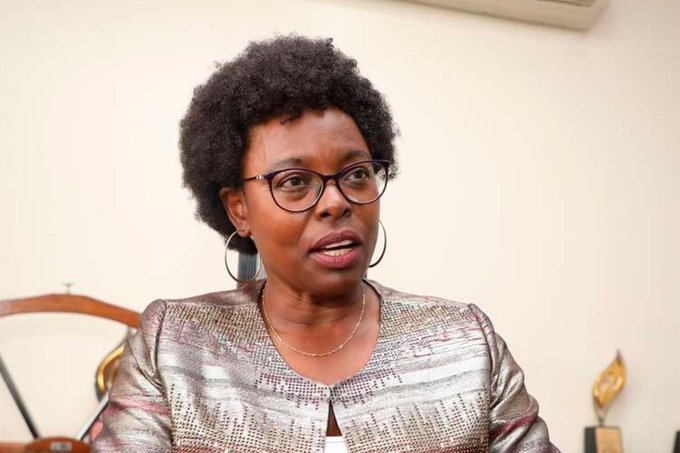Controller of Budget Margaret Nyakang’o has confirmed that the State Department for Interior and National Administration is among the key government entities whose budgets for the 2025/2026 financial year have been approved, enabling them to begin drawing funds from the Exchequer.
In the new fiscal allocations, the Interior Department has received Sh32.6 billion, while the National Police Service (NPS) has been allocated Sh125 billion. Nyakang’o noted that her office has completed approvals for all national government entities, including the Executive, Judiciary, and Legislature.
However, she raised concern over delayed compliance by county governments, pointing out that only Nairobi and Kisii had their budgets approved by the end of July.
Thirteen other counties, including Kitui, Makueni, Machakos, Kakamega, Kirinyaga, Nyeri, West Pokot, Vihiga, Samburu, Kajiado, Laikipia, Lamu, and a second entry for Kirinyaga, are under review.
The rest have yet to submit their spending plans, meaning they remain locked out of Treasury funding until the Controller’s office approves their budgets.
Nyakang’o warned that such delays are in violation of the Public Finance Management Act, which requires counties to submit approved budgets by June 30 each year to qualify for funding. She cited Article 228(5) of the Constitution, which bars the Controller from approving any withdrawal from public funds unless it's legally sanctioned.
She added that her office is also required to provide quarterly reports to Parliament on the budget implementation progress of both national and county governments.
Without CoB clearance, affected counties cannot access money to fund projects, pay workers, or settle outstanding bills with suppliers effectively stalling operations.
Nyakang’o also pointed to political interference in some devolved units, accusing certain assemblies of using budget approvals as a bargaining chip to pressure governors or settle political scores.
In her third-quarter review of national government budget performance for the 2024/25 financial year (covering July 1 to March 31), Nyakang’o noted that the government’s original gross budget stood at Sh4.49 trillion.
This figure was later revised to Sh4.37 trillion under the first supplementary budget and then increased to Sh4.64 trillion in a second adjustment, up from Sh4.34 trillion the previous year.
According to her report, the revised budget includes Sh616.09 billion for ministerial development spending accounting for 13 percent of the total revised gross budget and 26 percent of the ministerial budget of Sh2.35 trillion.
The recurrent budget comprises Sh1.73 trillion for ministries and Sh2.29 trillion under Consolidated Fund Services (CFS), making up 37 percent and 49 percent of the gross budget, respectively.
Between July and March, national government expenditure hit Sh2.86 trillion, reflecting 62 percent of the revised estimates. This includes Sh338.18 billion in development spending (55 percent absorption), Sh1.20 trillion in recurrent ministerial expenses (70 percent absorption), and Sh1.31 trillion in CFS expenditure (57 percent absorption) a slight dip compared to the Sh2.91 trillion spent in the same period the previous year.
Nyakang’o concluded by emphasizing the importance of timely and lawful budget submissions to ensure uninterrupted public service delivery across both levels of government.

